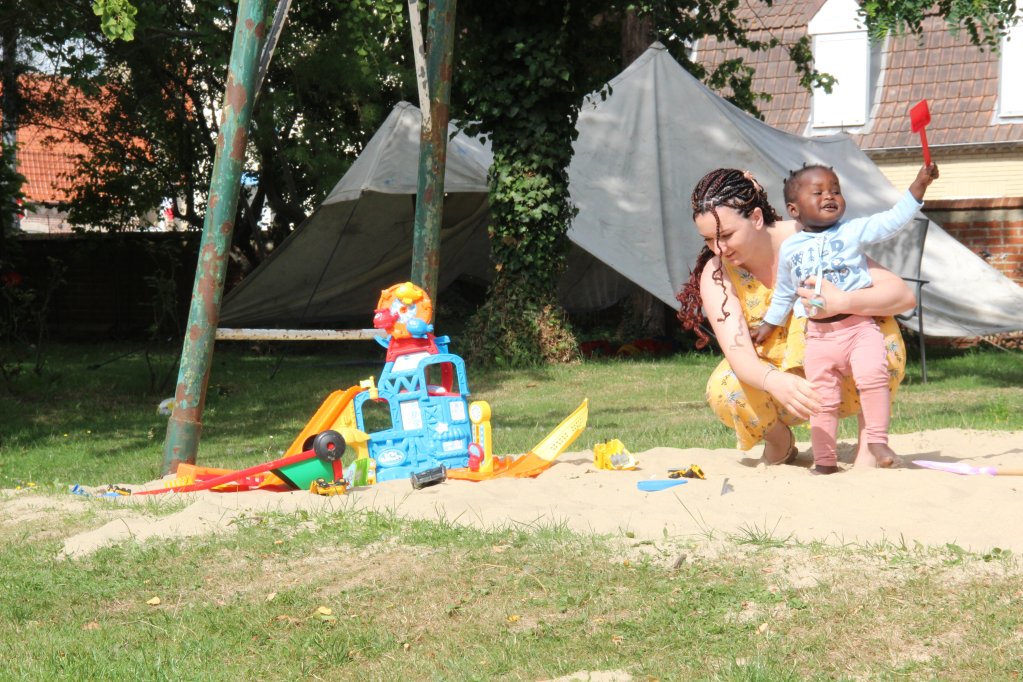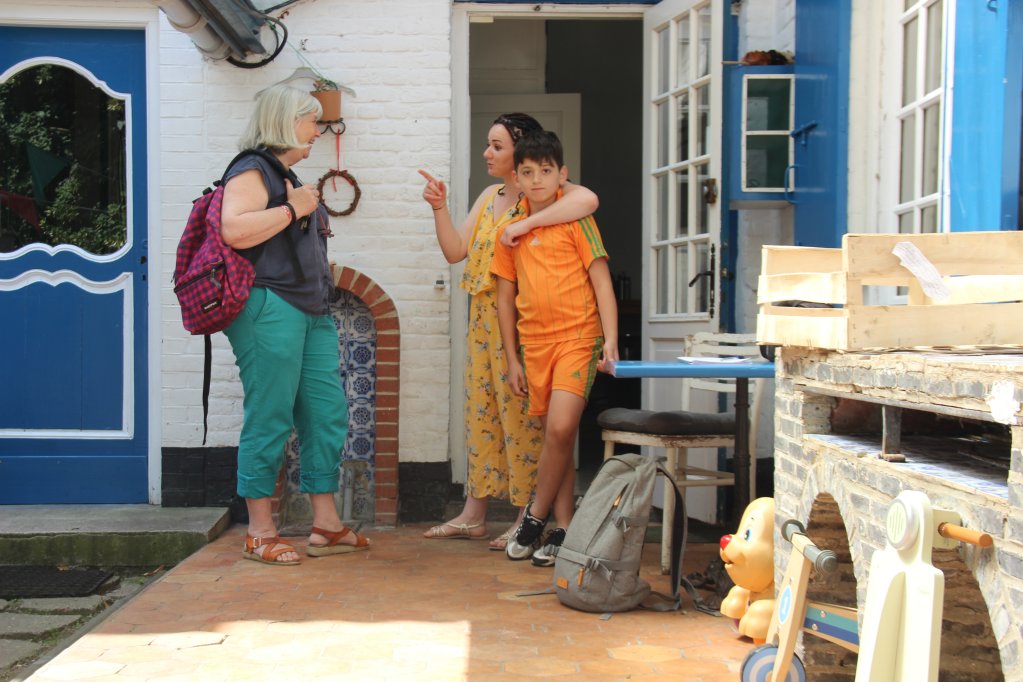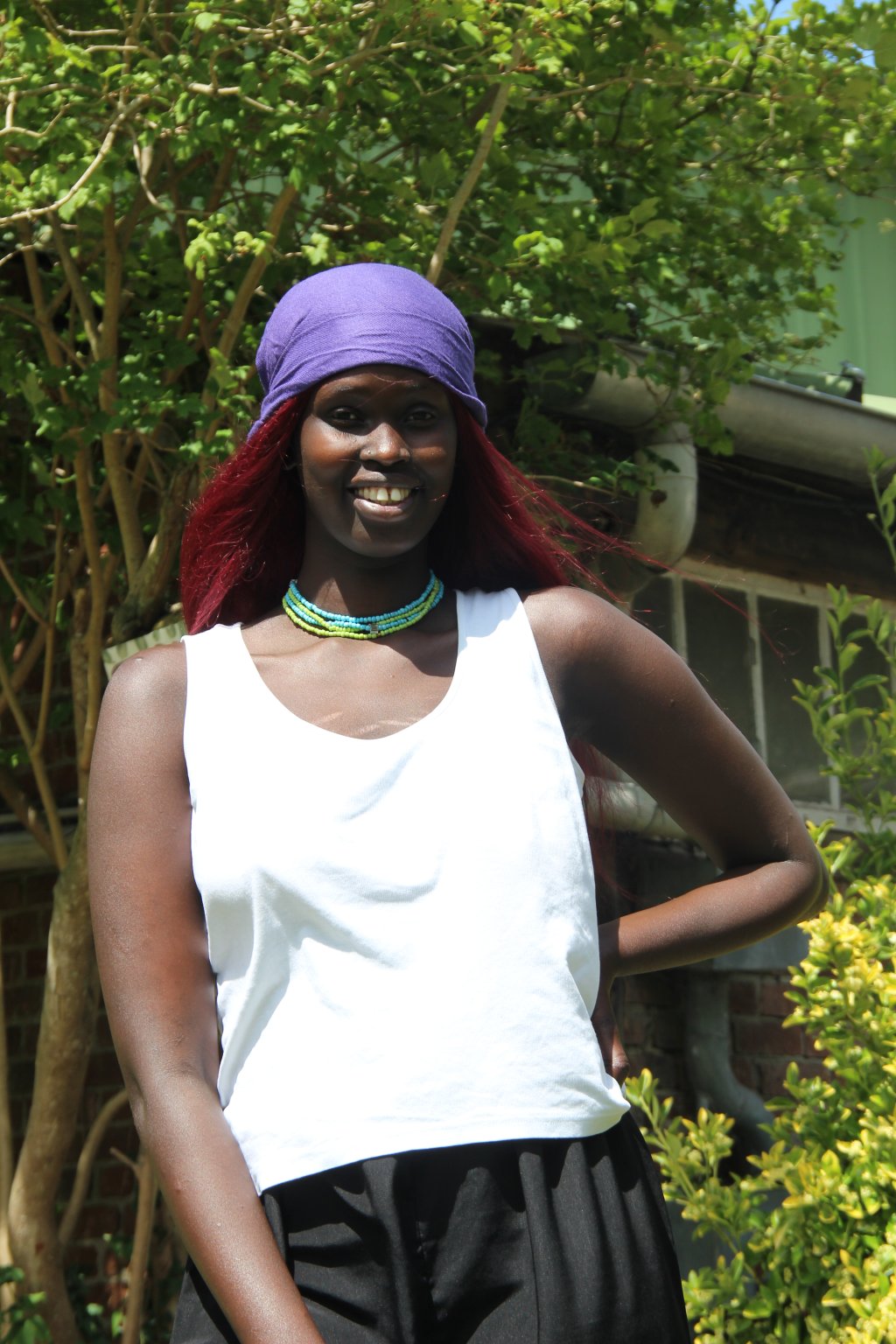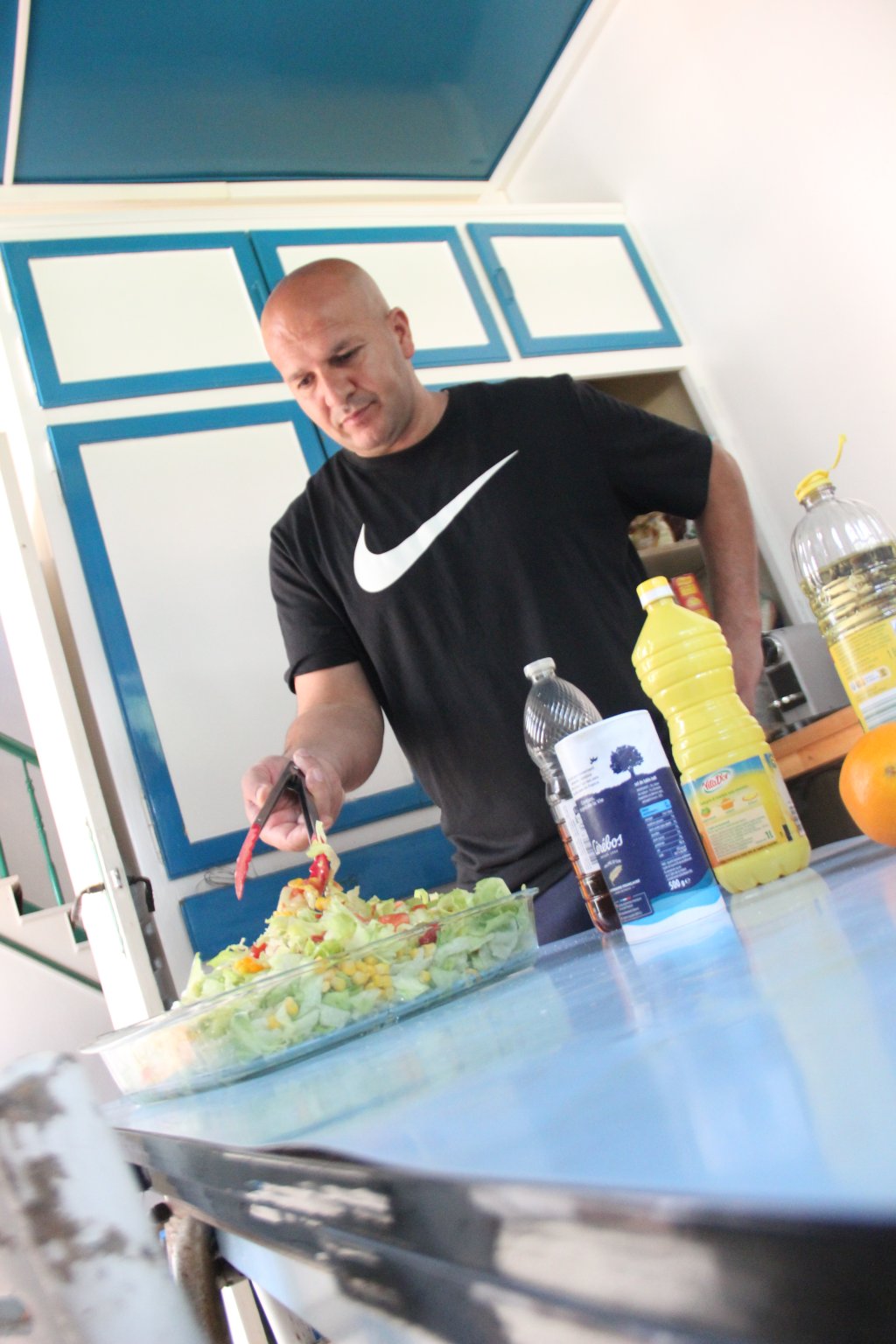There is no need for paperwork to enter Sesame House (Maison Sésame) in Herzeele, northern France: the welcome is unconditional. Over 2,000 migrants on their way to England have passed through since 2019 to enjoy a moment of peace, far from the wandering and destitution typical of the migrant camps around Calais and Loon-Plage.
Sesame House is a red house, surrounded by greenery. One comes here tired, there is no need to knock. The wooden gates are never closed. And often, it’s difficult to leave. The large brick building located in Herzeele, in the heart of the northern French countryside, has been offering the most vulnerable migrants arriving on the French coast everything they’ve been lacking outside: a roof, a shower, food and a safe environment.
Over 2,000 migrants, usually families, have already made "a stop to rest" for several weeks, or even several months in the winter. In doing so, they take advantage of one of the house’s six rooms and its vast garden to temporarily forget "their absolutely catastrophic situation" on the migration road, said Sylvie Desjonquères, founder of Sesame House.

"They get here looking tired and broken down. And we see them completely change," said Lucie, the coordinator of the facility. In mid-July, the noise and laughter of a group of children filled the garden. An Iraqi father who had been tortured in his native country relaxed by mowing the lawn. Nearby, a young Albanian woman played with a baby in the sand. The infant with wide, curious eyes had been born while his parents were making the perilous journey to flee Sudan.
'Simplicity, humanity'
A few days ago, a Sudanese resident who had been detained in Libya for three years referred to Sesame House as a "paradise." The place differs from other types of shelter along the coast which are on offer to those waiting to attempt the dangerous boat crossing to England. Other than the geographic distance and the administrative difficulties (linked to the Dublin Regulation) of being sheltered by the state, migrants are left with no other option but to live in make-shift camps in the woods around Loon Plage, which are often evacuated every week by the authorities.

These camps are in the grip of the law of the smugglers. Women and children are often exposed to violence, and the only relief comes from associations which provide them with food and medical treatment. "They are condemned to hide outside. Here, they can forget about their fear and rediscover something they lost: simplicity, humanity," said Desjonquères, former president of an Emmaüs community in Dunkirk. A non-denominational Christian community operating on a global level and founded by Abbé Pierre, Emmaüs communities often offer food and shelter to those in need and marginalized by society, like migrants.
Sesame House displays the words of Article 13 of the Universal Declaration of Human Rights in giant letters on one of its façades, reflecting the unconditional welcome it offers the destitute: "Everyone has the right to freedom of movement and to choose their residence within a state."
Read Also
'Mom told me to stay away from the guns': InfoMigrants witnesses migrant camp shooting
Far from the camps
The free circulation of people is the mantra of those who run Sesame House. They do everything they can to integrate migrants with the local community in Herzeele. "Locals come to bring us food, material, or cook with our residents. We organize parties to mix different groups of people. A Sudanese citizen who was shot in the leg in the Loon Plage camp, whom the hospital entrusted to us for her convalescence, has found a physiotherapist [via these parties]," said Desjonquères.

The woman in question, who laughed as she hopped down the house's main staircase, had left her country to avoid "violence and gunfire." Apuk doesn't regret her tortuous journey: "Everyone is free here. That's not the case in Africa, where I come from," she said.
Faraj, his wife, and their two sons also lived in the Loon Plage camp before being directed to Sesame House by social media. "I wanted to attempt the crossing, but my wife, who was seven months pregnant, wasn't feeling well," said the former Iraqi security agent. "Life in the camp is very difficult for families. You're surrounded by bad people. I'd like to live in France or England. In Iraq, criticizing the government lands you in prison."

Passing through
"The stories we hear are hard," said Lucie. "Yet what matters here is getting back to a normal life. The children play, we cook good meals, everyone takes care of themselves, and everyone dances in the evening." The fifteen or so migrants staying there at the moment are aware that they are only passing through, to make way for others.
Even so, some never forget the experience. "It's the first time I felt at home again since I left my country," said Majena, a young Albanian woman who came back in July with her two sons to help the residents of Sesame House, after staying there at the end of last year. The eldest son of a Kurdish family, who spent time in Herzeele in 2020 before being offered asylum in England, will also return this summer as a volunteer.
Six and a half years after its creation, Sesame House remains open. "Its operations cost €85,000 a year, which is covered by donations, civil society, and our actions," said Desjonquères, who bought the family home from her brothers and sisters to create the shelter. She critized that the UK allocated the €500 million to France since 2023 with the aim of militarizing the maritime border. If that money was instead invested in shelters like Sesame House, she argued, "there could be another 6,000."
Read Also‘I had mud up to here!’: Migrants continue Channel crossing attempts
